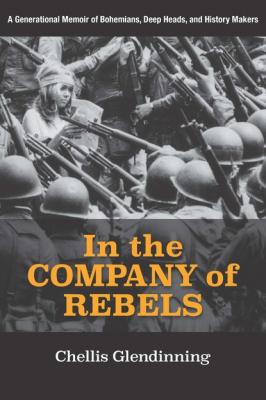ТОП просматриваемых книг сайта:
In the Company of Rebels. Chellis Glendinning
Читать онлайн.Название In the Company of Rebels
Год выпуска 0
isbn 9781613320976
Автор произведения Chellis Glendinning
Издательство Ingram
BE HISTORIC
Be strong, be true, be historic.
RICHARD GROSSMAN,
LETTER TO CHELLIS GLENDINNING, 2011
WHY SHOULD WE BOTHER learning about other generations’ attempts to bring justice, peace, and beauty into this tattered world—particularly in these times when, for so many, the urgency of immediate survival demands our attention? Why in this razor-edge age of rising flood waters, rising cancers, and rising right-wing lockstep should anyone care about what pre-dated the burning Now?
I admit that, when I was filled with the hubris of youth, I had little interest in what went before. The subject as presented in academia was too often viewed as a big bore, and despite my mother’s attempts to awaken me to our ancestors’ journeys into the collective timeline, I hadn’t yet grasped why anyone would give a hoot. Besides, being young appears to be a time for bursting upon the moment, all the while believing that one is inventing a storyline that has never been thought of before.
While marching in an anti-war demonstration in Berkeley, I caught a glimpse of a familiar campus figure. Bob Mandel was a red diaper baby, student activist, and member of the Oakland Seven who had been charged with conspiracy for organizing Stop the Draft Week in 1967. He was marching alongside his father, Bill Mandel, who had been a staunch Communist in the 1930s, had boldly defied Senator Joseph McCarthy’s House Un-American Activities Committee in the ‘50s, and was a noted expert on the Soviet Union. While a sense of fascination did buzz through my bones at seeing the elder among us, I was too timid to pursue my attraction, and so I discounted it.
But lo these many political winters later, when I hit the age of sixty and suddenly could see the decades of history I had lived through, I experienced a dazzling awakening. What can I say? History rocks.
Indeed, in today’s climate you and I are witnesses to some crucial moments in human history—one of which, without a doubt, is the flailing exploits of this latest embodiment of state/corporate economics in the U.S. presidency. And yet it comes as little surprise that those benefitting from the marriage of corporate

